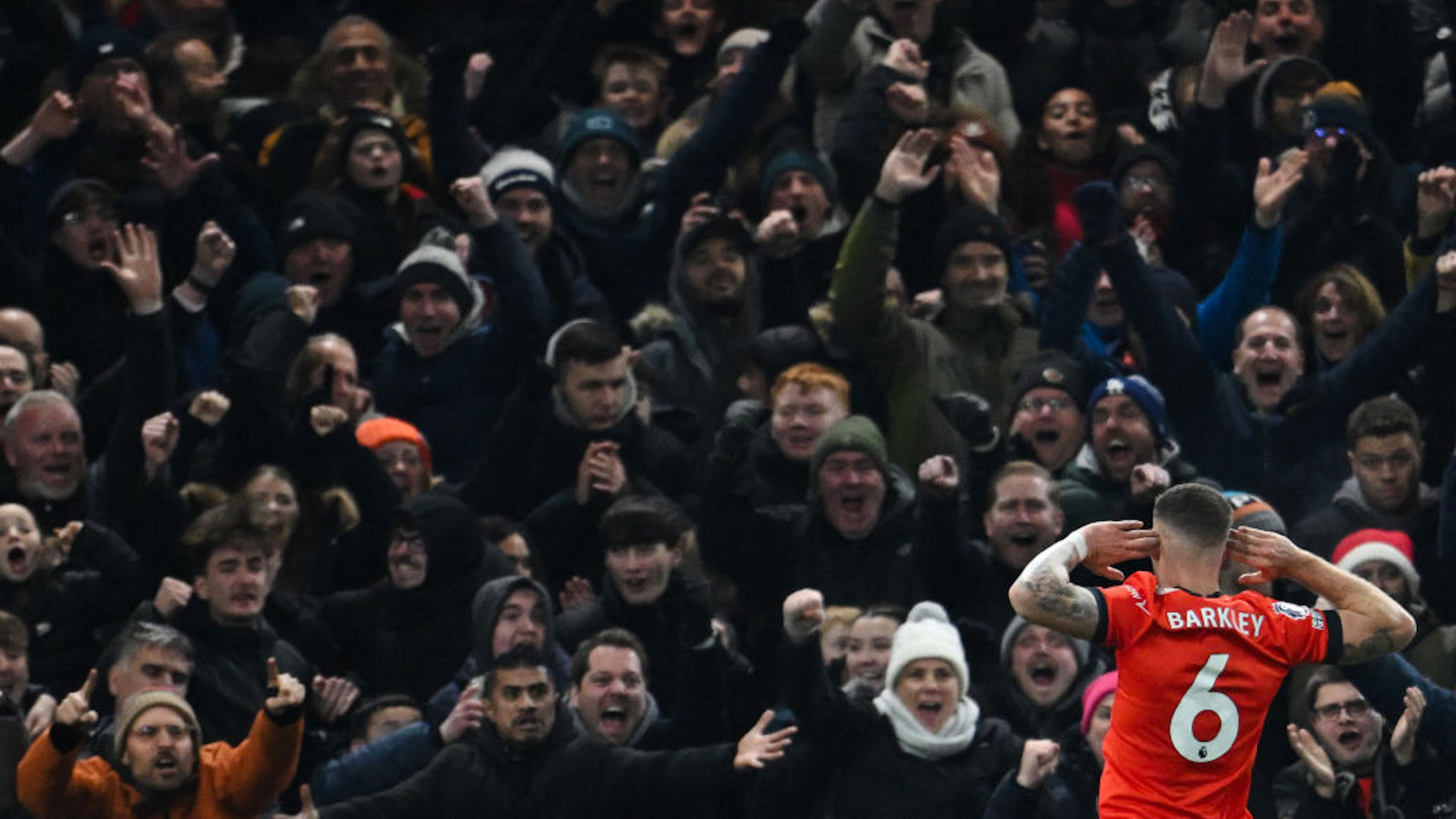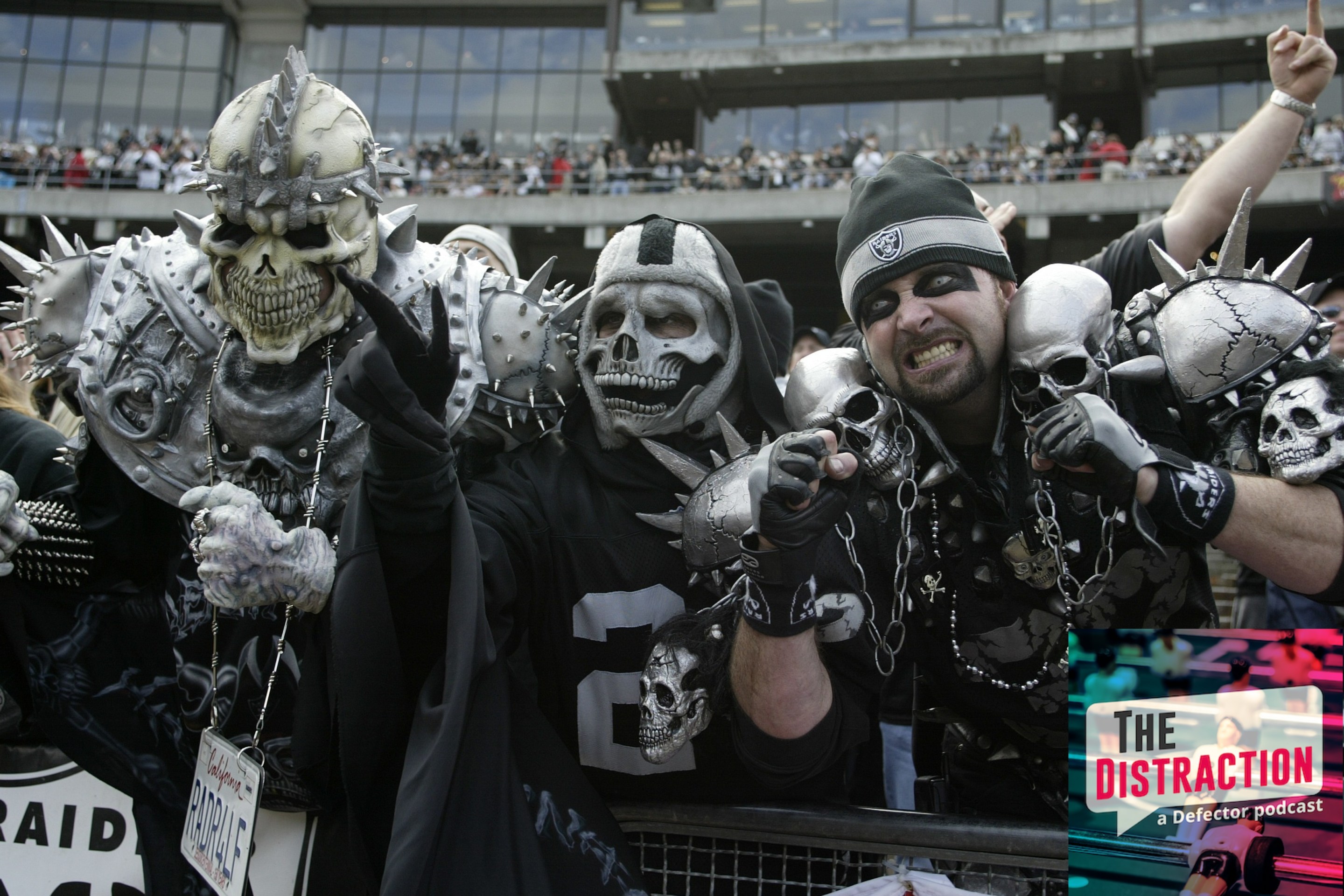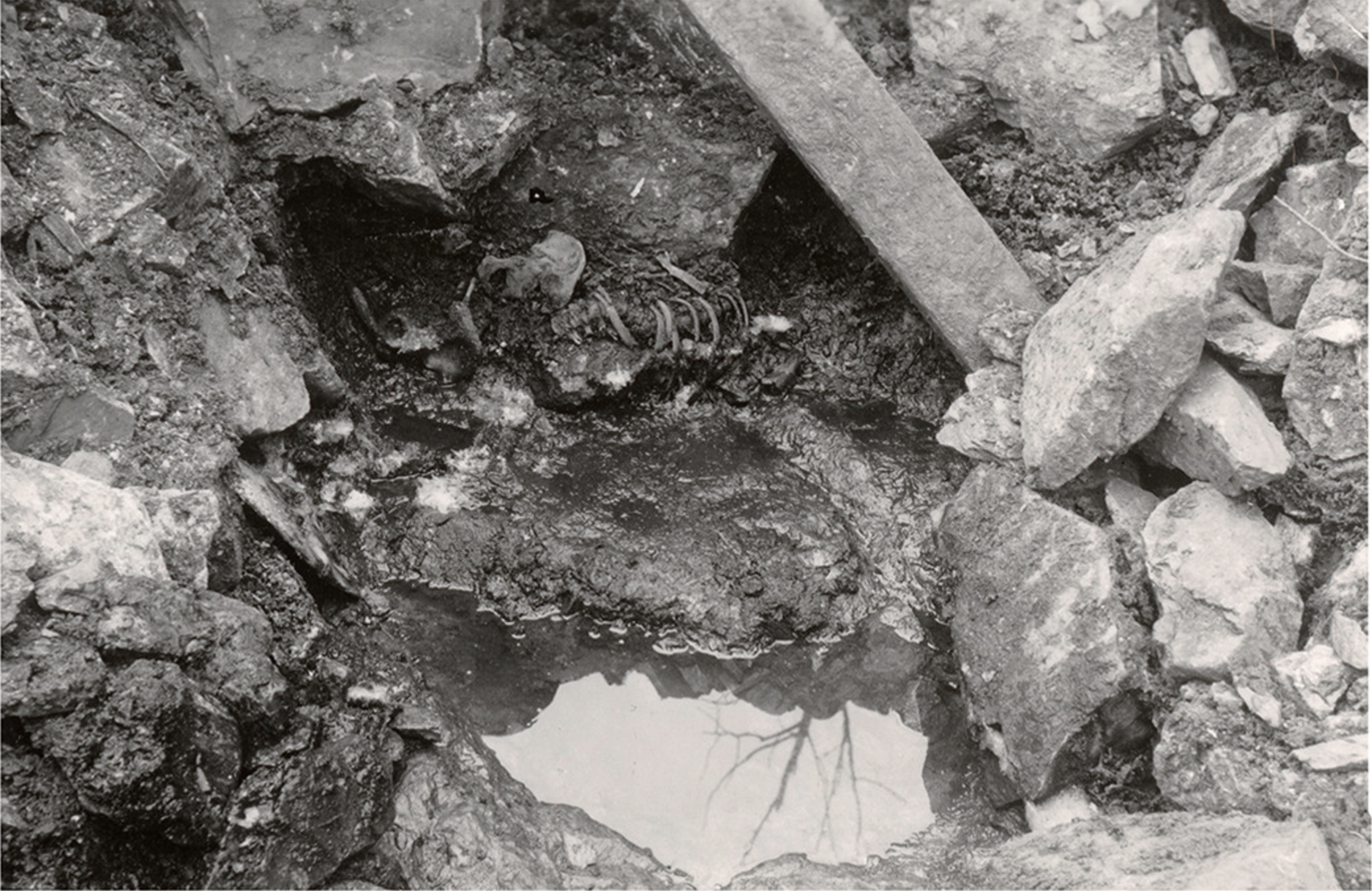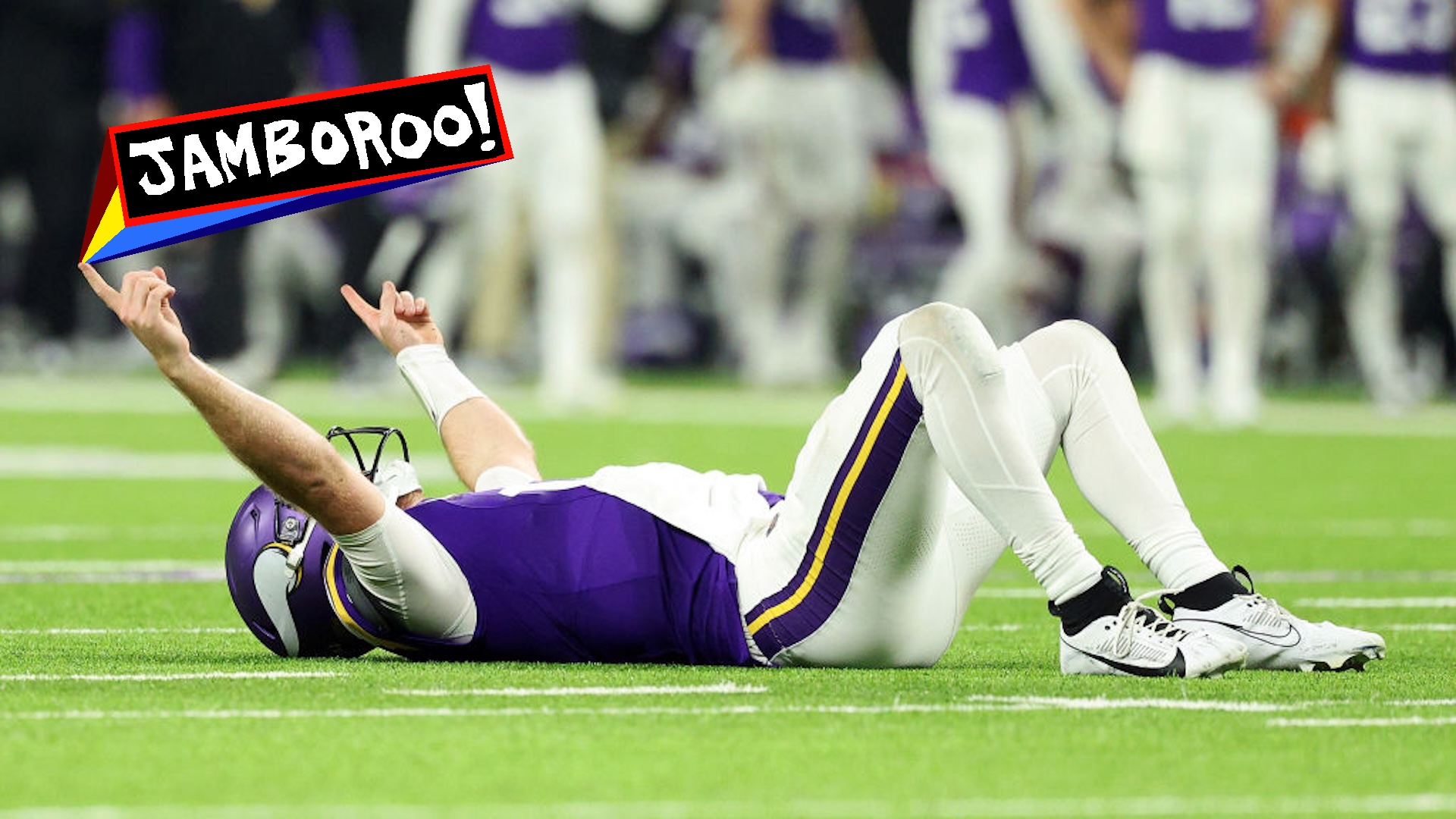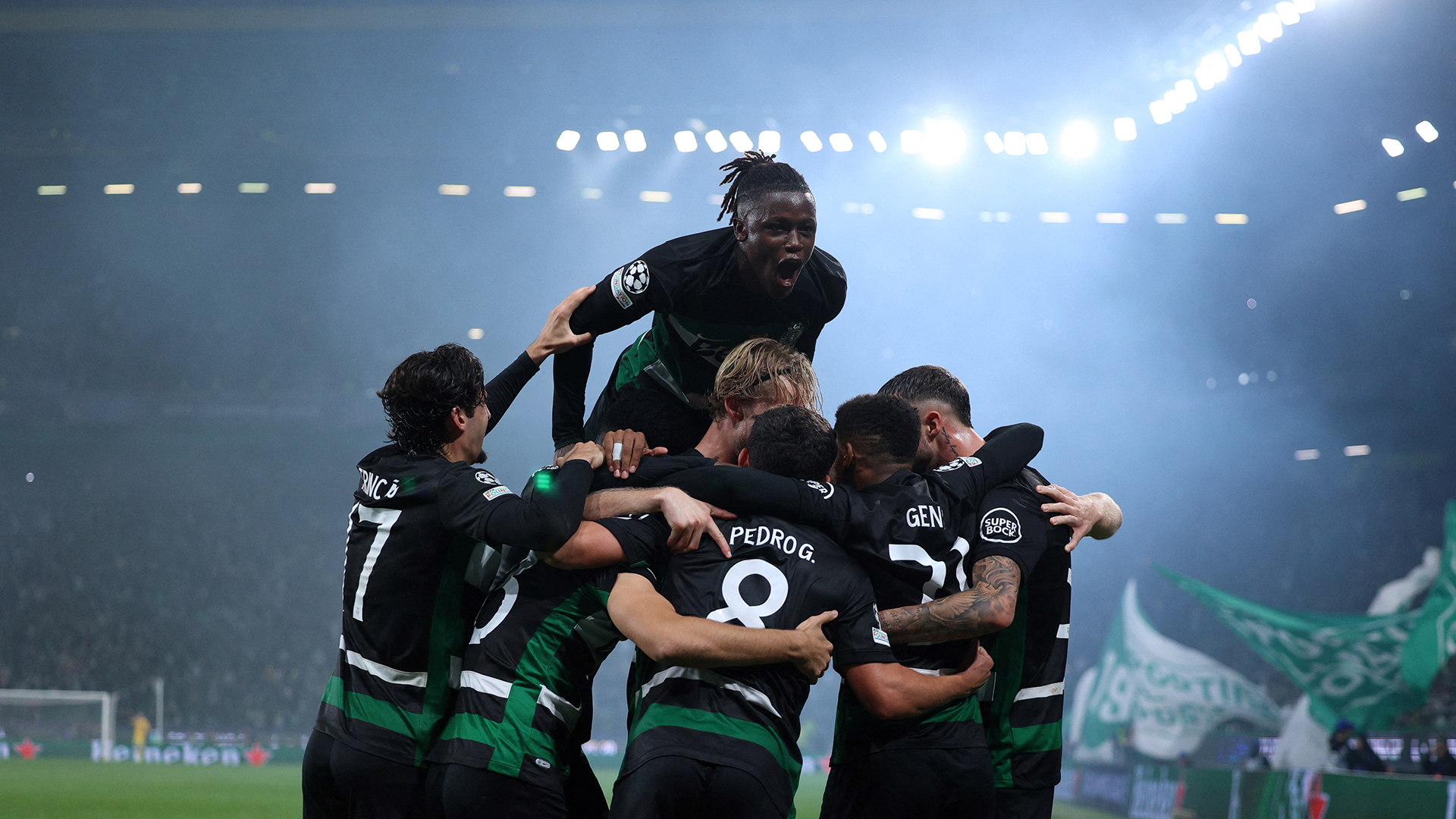It remains highly unlikely that Luton Town, one of the tiniest minnows to have ever swum its way into the Premier League, will survive its season-long relegation battle. The Hatters currently sit two points above the relegation zone, a position of tenuous safety they only enjoy thanks to Everton's unprecedented 10-point deduction, and the smart money would be on them falling further as the season goes on. But on Tuesday night, while suffering through a simultaneously life-affirming and soul-crushing 4-3 home defeat to Arsenal, Luton showed itself to be a team that is capable of swimming in the current, at least while Ross Barkley is on the field.
Barkley, a midfielder who turned 30 years old this week, was hardly the summer's splashiest signing. The Hatters snagged him on a free transfer in August, which at the time felt like nothing more than the latest depressing development in Barkley's depressing career. Barkley first arrived in the Premier League as a teenager at Everton, where his powerful, all-action game produced enough goals and assists and caught enough eyes to earn him a call-up to the England senior squad. He then did the thing that a lot of good young players at mid-table clubs do, and engineered a move to Chelsea at the age of 23. From there, his playing time and development became immediate victims of Chelsea's near-constant state of disarray. He was loaned to Aston Villa after three fruitless seasons in London, had his contract terminated at the end of the 2022 campaign, and then spent all of last season toiling away at Nice. When he landed at Luton, the general feeling wasn't that the Hatters had staged a coup by signing an experienced Premier League player, but that Barkley's career was already in its final stages.
Barkley's funeral rites may need to be put off a little longer, though. He has started Luton's last six Premier League games in the center of midfield, and on Tuesday night he played what might have been the most effective game of his career. The goal he scored deserves plenty of attention, but it was everything else he did throughout the match that gave Luton the ability to stand up to the Premier League leaders and give them a real scare.
Teams like Luton get brushed aside by teams like Arsenal for a lot of reasons, but one of the most consistent is the fact that small clubs are desperately short of players who want the ball. I don't say that as a moral judgment; Luton's players aren't cowards, but they are young and inexperienced and physically overmatched in ways that make them unsuited to impose themselves on a Premier League game. For all but the brightest of starlets, it takes years of consistent, high-level competition to become the kind of player who feels not only at ease sharing the field with a team like Arsenal, but willing to seek out the ball and take the game to them.
Ain't nobody, like Ross Barkley 🎶 pic.twitter.com/CoZgDRd6aG
— Luton Town FC (@LutonTown) December 6, 2023
In the 90 minutes Barkley played on Tuesday, you can see a player who has reached that level of ease and confidence. He spent the entire game hurling himself into the action rather than shying away from it. He dropped deep to receive the ball and keep possession; he showed fearlessness dribbling into and out of tightly defended spaces; he turned defenders and carried the ball bravely through the midfield. Most importantly, he was always there for his teammates, offering himself as an outlet even when closely marked by a defender, confident that he could receive the ball, quickly find some space for himself, and release the pressure that was building up on his always-harried teammates.
A player who can operate like that, who wants to operate like that, is an invaluable resource to a team like Luton. These promoted sides tend to arrive in the Premier League with decent attacking talent—speedy teenage wingers perfectly suited to tear up Championship-tier competition—but few players capable of controlling the game long enough to actually get those attackers involved. It was Barkley's ability to exert that level of control that brought Luton oh so close to securing an historic result on Tuesday.
The irony of all this is that Barkley was never previously known as much of a savvy midfield operator. Part of why he got lost in the shuffle at Chelsea is that it's always been tough to figure out what style of play really suits him, and what his best position is. He always had all the speed and physical presence you could want from a midfielder, but never enough of the sharpness or technical ability. Barkley's best moments have usually come when he's given the ball with plenty of grass to run into and not too much to think about. So it was a little strange on Tuesday to see him, wearing a defensive midfielder's no. 6, dropping into the pivot and repeatedly outplaying Arsenal's collection of all-world midfielders. That he did all that is a testament not only to his skill as a player, but to his willingness to step up and fashion himself into exactly the kind of player Luton needs most.
Performances like Tuesday's won't turn Barkley into a star or a household name, or even earn him a transfer back to one of the Premier League's bigger clubs. But they can give him something he's been seeking for a long time: a truer understanding of who he is as a player, and what he can offer a team that's willing to trust him. Nobody will care too much about all that when Luton inevitably gets relegated, save for the fans who will keep packing themselves into the team's microscopic stadium and savoring what it means to lose 4-3 to Arsenal instead of 4-0.
